Higher Self? 更高的自我
中国日报网 2024-07-19 12:48

Reader question:
Please explain “higher self” in “ego vs. higher self”.
My comments:
Our lower self against our higher self, that is, our unselfish self.
Vs. is short for versus, meaning against, as in Team USA versus Team Russia.
Versus, or vs., signifies there’s competition going on. Hence, “ego vs. higher self” indicates there’s a battle between our ego and our higher self. In other words, we want to suppress our ego, so to speak, in our attempt to reach our higher self.
Both “ego” and “higher self” are us, by the way. Ego refers to our sense of self and our sense of self-importance. Ego sometimes thinks, for example, that we’re better than someone else. Ego, for another example, always puts our self-interest first and foremost.
Me, me, me, in other words.
One’s higher self, on the other hand, is the part of consciousness that realizes, for example, we’re equal with everyone else, no better and no worse. Our higher self recognizes, for instance, while we may be good at some things, other people are good at other things. Our higher self doesn’t take our ego, or our sense of self-importance, too seriously.
In fact, our higher self won’t take our ego seriously at all.
I don’t know if this is a good explanation, but remember, ego represents our base elements, our animal instincts, if you will, such as pride, hatred, greed, lust, jealousy and so forth while our higher self is our spiritual self or our more enlightened self.
Ego is our lower self, if you will. It is small and petty while our higher self is noble and magnanimous. It’s the greatness of our spirit.
We all have egos, of course, and aplenty.
As for acting on behalf of our higher self, there’s still much left to be desired.
Let’s just put it that way.
Now, media examples of “higher self” (no examples of “ego”, by the way – for once, let’s leave our collective “ego” alone):
1. Among the many subplots between the Celtics and Nets, there’ll be perhaps a unifying factor for a pair of former teammates. The NBA Playoffs will take place during Ramadan this season from April 1 to May 1, which includes the first round. Both the Celtics’ Jaylen Brown and the Nets’ Kyrie Irving have observed Ramadan in past seasons.
That means from sunrise to sunset, those practicing will fast and won’t consume any water or food. That’s a tough task, especially in a playoff series. But they won’t be able to drink water or take in any nutrients until the sun’s down. Brown didn’t specify whether he’ll observe Ramadan during the postseason, saying it’s a private matter, but he talked about what the month has meant for him.
“Ramadan is something special,” Brown said Thursday. “It’s something that’s saved my life in a lot of ways. So shoutout to all the people who are participating and shoutout to everybody who shows respect because, in reality, some things are bigger than basketball.”
Both Irving and Brown have observed Ramadan in past years. Brown has celebrated Ramadan previously and he also fasted a few years ago to help improve his game. Irving spoke about converting to Islam last year and has been more vocal about what it’s like to fast during Ramadan.
There are plenty of challenges that come from observing Ramadan, but it’s also a time of reflection and prayer during the holy month. Both Irving and Brown said their connection to God has strengthened during Ramadan. That’s helped them off the court while also helping their mental strength solidify during the month.
“Ramadan is a special moment, a special time,” Brown said. “Definitely relating your relationship with God and your relationship through adversity, persevering through distractions and any negativity, anything that pulls you away from being your higher self.”
There are other cases of NBA players fasting while still playing basketball at the highest level. Hakeem Olajuwon famously put up numbers during Ramadan, including winning Player of the Month in 1995.
- Celtics’ Jaylen Brown on Ramadan, fasting during NBA Playoffs: ‘It’s something that’s saved my life’, Masslive.com, April 14, 2022.
2. Naomi Klein is spun from a certain thread of social activist that, if embodied in a single person over the last 30 years, would have voted for Ralph Nader, linked arms at a G7 protest, boycotted Nike, opposed the Iraq War, occupied Wall Street, advocated for Palestine, door-knocked for Bernie, marched against fossil fuels and hoped that Covid would lead to a communitarian reset of Western social norms and practices.
She is their champion. She is the one who provides strong reporting, exhaustive research and the acute, prescient recognition of trends and currents in modern society. Klein has done this for years, from her books No Logo and The Shock Doctrine to This Changes Everything, along with a raft of articles and columns for The Guardian and numerous other outlets. Her work usually finds its deep center in critiquing capitalism as an ultimately brutal and unforgiving socio-economic system.
Her new book, Doppelganger, springs from the phenomenon Klein has experienced for years: that of repeatedly being mistaken for someone else – i.e., living with a doppelganger. She takes this frustrating, even unnerving experience as a leaping-off point into a discussion of a broken society in which she notices there are doppelgangers everywhere.
The book serves as a kind of sociopolitical post-mortem of the Covid era, in which our social divisions and paranoias – fertile breeding grounds for doppelgangers – only grew more strident. It is also tragically timely: A significant thread of the book focuses on the decades-long conflict between Israel and Palestine. It focuses in particular on Israel as its own doppelganger – both victim and victimizer.
Doppelgangers are, in brief, people who by all appearances are us but are really our opposite. (Inherent to the nature of the doppelganger is the question: are they, in fact, so very opposite to us?) While the doppelganger can represent the soul, our higher self, writes Klein, “[it] also represents the most repressed, depraved, and rejected parts of ourselves that we cannot bear to see – the evil twin, the shadow self, the anti-self, the Hyde to our Jekyll.”
While the experience of having a doppelganger had been initially confusing and painful for Klein, by the end of the book it becomes – to my thinking anyway – a gift from God. She turns a curse into grace. Naomi Klein’s doppelganger indirectly birthed a brilliant piece of writing and social commentary – and thoughtful remedies for our common problems (including some needed critiques of the left) – that never would have come to light otherwise.
The woman that Klein is constantly mistaken for is another Jewish female writer named Naomi, also with a one-syllable last name, who traveled along the same general byways of liberal social feminist commentary culture that Klein did. This writer is Naomi Wolf. She was the author of 1991’s The Beauty Myth and an outspoken voice in what has been called third wave feminism. She was an adviser for Al Gore in his run for the presidency in 2000. Wolf is associated, correctly or not, with advising Gore to be more of an “alpha male.”
- In ‘Doppelganger,’ Naomi Klein investigates her twin and uncovers a shadow world, AmericanMagazine.com, December 01, 2023.
3. Question:
“I have sought connection to my higher self but am not feeling it.
I meditate, and practice “mindfulness”, I do ACIM (A Course in Miracles) practice and law of attraction techniques but no link beyond ego and thoughts!
I am extremely stressed by my circumstances and frustrated that my attempts to surrender and “be” have not yielded anything different.
I know that my only true happiness cannot be sourced from external events, which given I have not achieved happiness or peace there, leaves me extremely sad and struggling to “self-talk” myself out of dark thoughts.
What am I doing wrong?
What will my “existence” consequences be if I have a life without tapping into source?”
Response:
The problem seems to be that you have certain expectations about what it is to live from the higher self and because those expectations are not met, you think that you are not connected and supported by your higher self.
These beliefs about what you think is “spiritual” are the source of your struggle, anxiety, and sadness.
You can never be separate or unconnected from your true self. You can only confuse yourself into thinking that is the case.
Meditation is simply a way to recognize the presence of your self-awareness.
Don’t imagine that this awareness is exotic, otherworldly, and flashy.
It is your simple, baseline awareness that is always there beneath your thoughts, feelings, ideas, and aspirations.
The reason why it is so easy to overlook is because, in a sense, it is quite ordinary, uncomplicated, and basic.
But this core consciousness is the source of everything, it is your true self, and once you are able to explore it on its own terms, that is when the real transformation of consciousness begins.
Love,
Deepak
- What Do We Do If We Can’t Connect To Our Higher Self? DeepakChopra.com, April 5, 2024.
本文仅代表作者本人观点,与本网立场无关。欢迎大家讨论学术问题,尊重他人,禁止人身攻击和发布一切违反国家现行法律法规的内容。
About the author:

Zhang Xin is Trainer at chinadaily.com.cn. He has been with China Daily since 1988, when he graduated from Beijing Foreign Studies University. Write him at: zhangxin@chinadaily.com.cn, or raise a question for potential use in a future column.
(作者:张欣 编辑:丹妮)









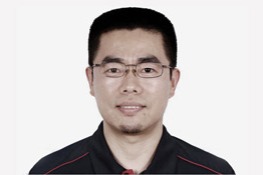
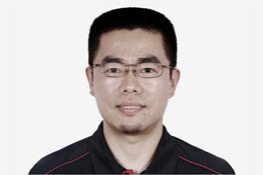
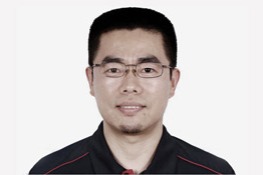
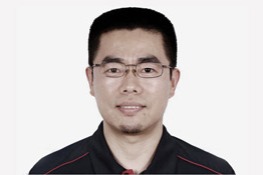
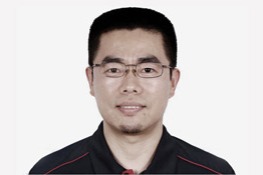



 英语点津微信
英语点津微信 双语小程序
双语小程序